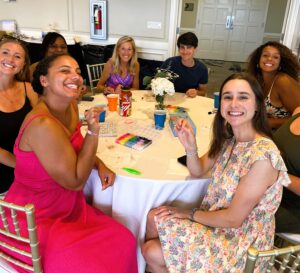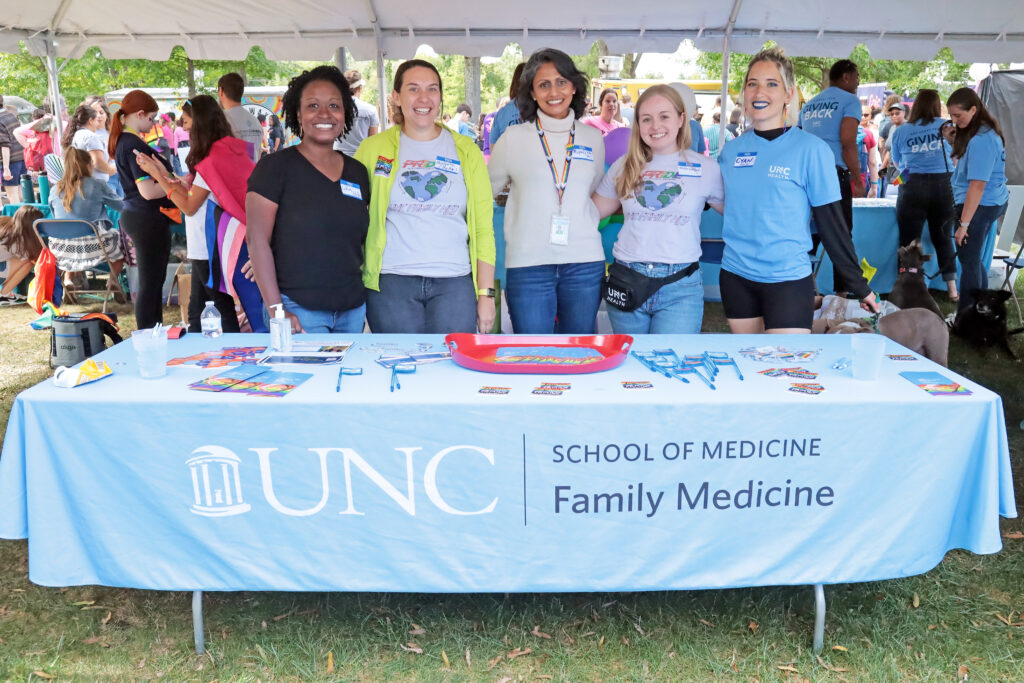Residency Climate and Community
 The UNC Family Medicine Residency is committed to promoting a culture that gives our residents the confidence and the cognitive and emotional space to grow, learn, and care for patients without the burden of conflicts, prejudice, or inequities experienced due to the bias or ignorance of others. We have several programs and initiatives that serve to bridge gaps and reinforce relationships that will sustain and strengthen our residents as they navigate major career milestones while forging a healthy balance between personal identity and professional identity:
The UNC Family Medicine Residency is committed to promoting a culture that gives our residents the confidence and the cognitive and emotional space to grow, learn, and care for patients without the burden of conflicts, prejudice, or inequities experienced due to the bias or ignorance of others. We have several programs and initiatives that serve to bridge gaps and reinforce relationships that will sustain and strengthen our residents as they navigate major career milestones while forging a healthy balance between personal identity and professional identity:
- Quarterly department-wide activities to highlight issues related to diversity within the department and foster greater inclusion and team-building.
- Elected class liaisons – A faculty member is elected by each class to follow that class throughout residency and serve as an extra layer of access to mentoring and support not connected to clinical or academic performance or advancement. Each class gets protected time to meet monthly with their faculty liaison on the first Wednesday during the hour preceding RBM.
- The ReCCC (Residency Climate and Community Collaborative) composed of representatives from each residency class and continuity site. This initiative was started to promote and protect a climate of communication and trust where all learners feel supported, valued, and included regardless of background, identity, or belief system. The ReCCC meets monthly on the 4th Thursday at 4 pm and has become a safe space for residents to discuss issues of concern. Affinity group leaders are invited to attend, along with the department Director of Inclusive Excellence. The Director of Inclusive Excellence for the residency coordinates and chairs this group and reports monthly to the residency and administrative/executive leadership to ensure open lines of communication and support timely responses to issues of concern.
-

UNC Family Medicine at Durham Pride Resident Affinity Groups have been launched to create spaces in which our residents feel embraced within the department’s diverse environment, and to facilitate more opportunities for groups of residents to coalesce in support of common identities, interests, and/or goals. These groups have protected time to meet quarterly and are provided a stipend to facilitate gatherings outside of the work environment for community-building and/or service activities to strengthen their shared identity. (Our current affinity groups are: Parenthood during Residency (PDR)led by Dr. Morgan McEachern; Serving the Under-Represented and Vulnerable (SURV) led by Dr. Michael Ropero; Residents of Color (ROC) led by Dr. LeRon Jackson; AAPI led by Drs. Brian Rayala and Vinay Reddy; LGBTQ+ led by Dr. Riley Smith; and Community of Allies (COA) led by Drs. Matthew Zeitler and Michael Baca-Atlas.)
- Quarterly faculty training is implemented for affinity group facilitation and creating psychologically safe spaces for resident mentoring and advising.
An 18-month rotating curriculum for health equity and advocacy called HEALS (Health Equity and Advocacy Leadership Series) was created to better engage residents with caring and advocating for the diverse communities of Carolinians we serve.
